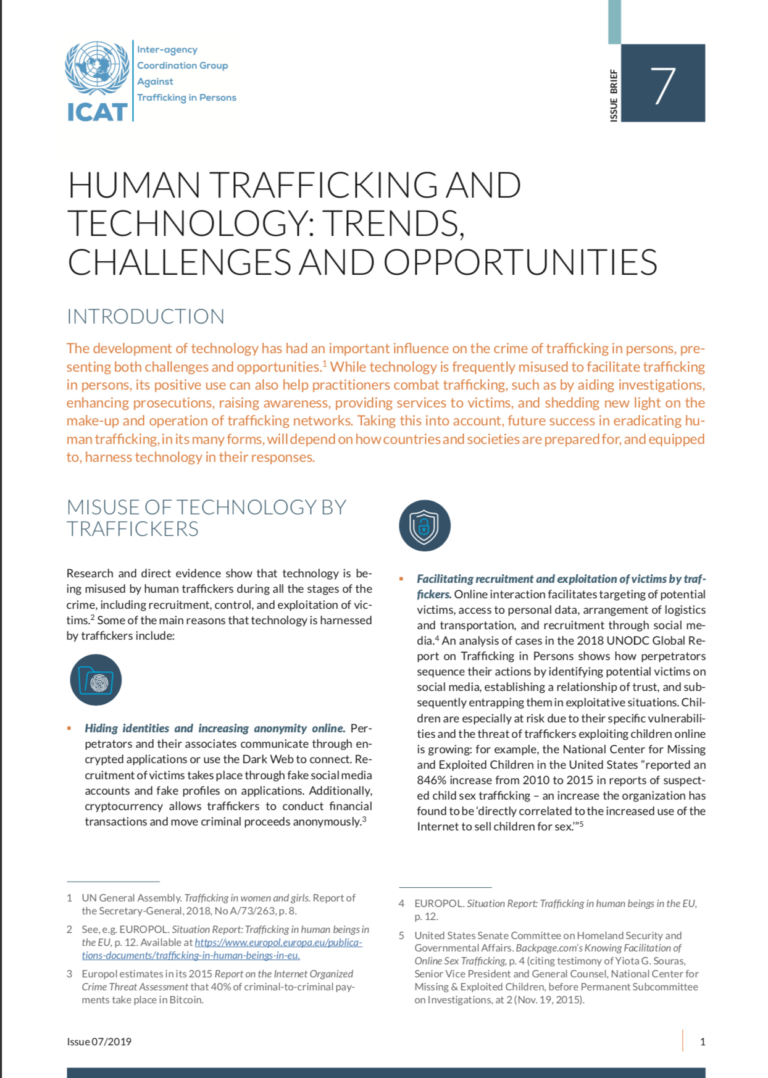The development of technology has had an important influence on the crime of trafficking in persons, presenting both challenges and opportunities. While technology is frequently misused to facilitate trafficking in persons, its positive use can also help practitioners combat trafficking, such as by aiding investigations, enhancing prosecutions, raising awareness, providing services to victims, and shedding new light on the make-up and operation of trafficking networks. Taking this into account, future success in eradicating human trafficking, in its many forms, will depend on how countries and societies are prepared for, and equipped to, harness technology in their responses.
Despite its frequent misuse, technology can be an important asset for those involved in combating trafficking in persons. Government authorities, non-governmental organizations, international organizations and private sector companies have at their disposal a wide range of technological tools that can be used to support their anti-trafficking efforts.

